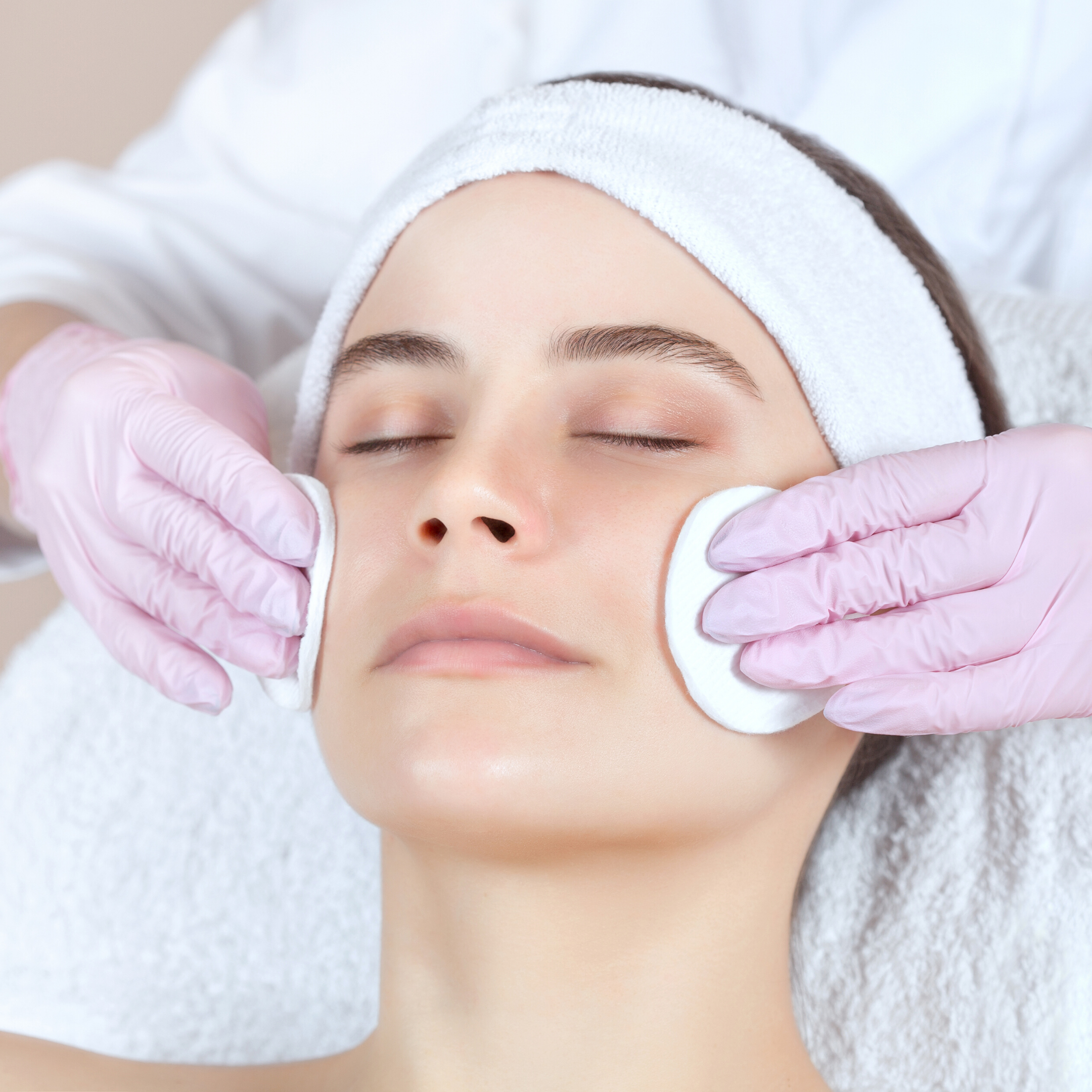What Are Ceramides and What Benefits Do They Offer?
Ceramides are a group of naturally occurring lipids found within the skin, playing a vital role in maintaining its overall health and function. These essential components, known as the epidermal lipids, form a significant part of the skin's barrier. Understanding the significance of ceramides and their impact on the skin barrier function is crucial for achieving optimal skin health. In this blog post, we will delve into the world of ceramides, exploring what they are, their benefits, and their role in preserving the skin's integrity. Join us as we unlock the secrets of these natural lipids in the skin and discover how they contribute to a healthier and more radiant complexion.
How Do Ceramides Work in Skin Care Products?
With their unique molecular structure, Ceramides are an essential component of many skincare products, revered for their remarkable benefits to the skin. Understanding how ceramides work in skincare products requires delving into their molecular structure and exploring the various ceramides utilized in formulations.
At their core, ceramides are lipids naturally occurring in the skin, forming a crucial part of the stratum corneum, the outermost layer of the epidermis. Their molecular structure consists of a long fatty acid chain attached to a sphingosine backbone. This structure enables ceramides to act as building blocks that strengthen and maintain the skin's barrier function.

Types of Ceramides in Skin Care Products?
In skincare, different types of ceramides are commonly utilized, such as Ceramide NP, Ceramide AP, and Ceramide EOP. These variations refer to slight differences in their molecular composition, but all share the same objective: to support the skin's natural barrier.
Ceramide molecules play a vital role in the body by helping to regulate moisture levels and prevent water loss from the skin. They form a protective barrier that shields the skin from external aggressors, such as pollutants and irritants. This barrier function not only helps retain moisture but also aids in maintaining the skin's elasticity and suppleness.
In skincare products, ceramide molecules are incorporated to mimic and enhance the skin's natural barrier. By replenishing the levels of ceramides in the skin, these products help fortify and strengthen the skin's protective layer. This reinforcement helps lock in moisture, improve hydration levels, and prevent transepidermal water loss, ultimately leading to a healthier and more resilient complexion. Ceramides in skin care products can assist in restoring the skin's balance and soothing irritation. Their presence helps calm and soothe inflamed or sensitive skin, promoting a more comfortable and harmonious environment. By incorporating ceramides into your skincare routine, you can help restore and maintain the health of your skin, promoting a radiant and youthful appearance.

What Types of Skin Care Products Contain Ceramides?
One common type of skincare product that contains ceramides is moisturizers. Ceramide-infused moisturizers are particularly effective in nourishing and hydrating the skin. These moisturizers replenish the skin's natural ceramide levels, fortify the skin's barrier, and prevent moisture loss. The presence of ceramides in moisturizers helps to improve hydration, soothe dryness, and promote a soft and supple complexion.
Cleansers are another category of skin care products that often incorporate ceramides. Ceramide-containing cleansers are designed to cleanse the skin while maintaining its natural moisture balance gently. These cleansers help remove impurities and makeup without stripping the skin of its essential ceramides, ensuring a thorough cleanse without compromising the skin's barrier function.
Facial serums are also formulated with ceramide molecules to provide targeted benefits. Ceramide-infused serums typically have a lightweight texture and a high concentration of active ingredients. These serums deliver a potent blend of ceramides and other beneficial compounds deep into the skin, promoting hydration, strengthening the skin's barrier, and improving overall skin health.
When searching for skincare products that contain ceramides, it's essential to read product labels and ingredient lists. Look for phrases like "ceramide complex" or specific ceramide types such as Ceramide NP, Ceramide AP, or Ceramide EOP. Opt for reputable brands known for their commitment to quality and efficacy.
Incorporating skincare products with ceramides into your routine can be highly beneficial, especially if you have dry or sensitive skin or are concerned about maintaining a healthy skin barrier. By using moisturizers, cleansers, and facial serums containing ceramide molecules, you can optimize your skincare routine and enjoy the nourishing and protective properties of ceramides for a radiant and well-hydrated complexion.
Are All Skin Care Products With Ceramides Equal?
Regarding skincare products with ceramides, it's essential to recognize that not all formulations are created equal. While ceramides are a beneficial ingredient for the skin, the efficacy and quality of the product can vary depending on various factors. One crucial aspect to consider is the concentration and type of ceramides used. Different ceramides, such as Ceramide NP, Ceramide AP, and Ceramide EOP, have varying molecular structures and functions. Additionally, the concentration of ceramides in the product can determine its effectiveness. A higher concentration of ceramides is generally more beneficial for restoring and reinforcing the skin's barrier.
Moreover, the overall formulation and combination of ingredients can impact the product's performance. Some skincare products may include additional hydrating ingredients, antioxidants, or soothing agents that complement the ceramides and provide added benefits. To ensure you're getting the most out of skincare products with ceramides, it's advisable to opt for trusted brands known for their commitment to quality and efficacy. Reading product labels, researching customer reviews, and consulting with skincare professionals can also help you select the right product for your specific skincare needs. Remember, not all skincare products with ceramides are equal, so choose wisely to unlock the full potential of this remarkable ingredient.
In conclusion, ceramides are essential lipids naturally found in the skin, playing a vital role in maintaining its health and integrity. These remarkable molecules contribute to the skin's barrier function, preventing moisture loss and protecting it from external aggressors. Incorporating ceramides into skincare products can reap numerous benefits for your skin. Ceramides help improve hydration, restore the skin's balance, soothe irritation, and enhance the complexion's overall appearance. Whether in moisturizers, cleansers, or serums, ceramides offer a powerful solution for individuals seeking to strengthen their skin's barrier and promote optimal skin health. Embrace the power of ceramides in your skincare routine and unlock the potential for a hydrated, resilient, and radiant complexion.
References For This Information:
- Dermatologic Therapy, October 2019, ePublication
- Baumann, L. (2015). Cosmeceuticals and cosmetic ingredients (First Edition, pp. 57-63). McGraw-Hill Education/Medical.
- https://www.mdpi.com/2079-9284/6/3/52/html
- Journal of Drugs in Dermatology, March 2017, pages 243-247
- Journal of Cosmetic Dermatology, December 2016, pages 549-558
- International Journal of Cosmetic Science, June 2017, pages 284-291
- Pharmaceutical Research, February 2018, ePublication
- Journal of Investigative Dermatology, June 2015, pages 1501-1509
- Skin Pharmacology and Physiology, March 2016, pages 135-147
- Journal of the American Academy of Dermatology, July 2014, pages 177-184
- Journal of the European Academy of Dermatology and Venereology, September 2017, pages 8-12
- Contemporary OB/GYN Journal, April 2021, ePublication
- BMC Complementary Medicines and Therapies, January 2020, ePublication



